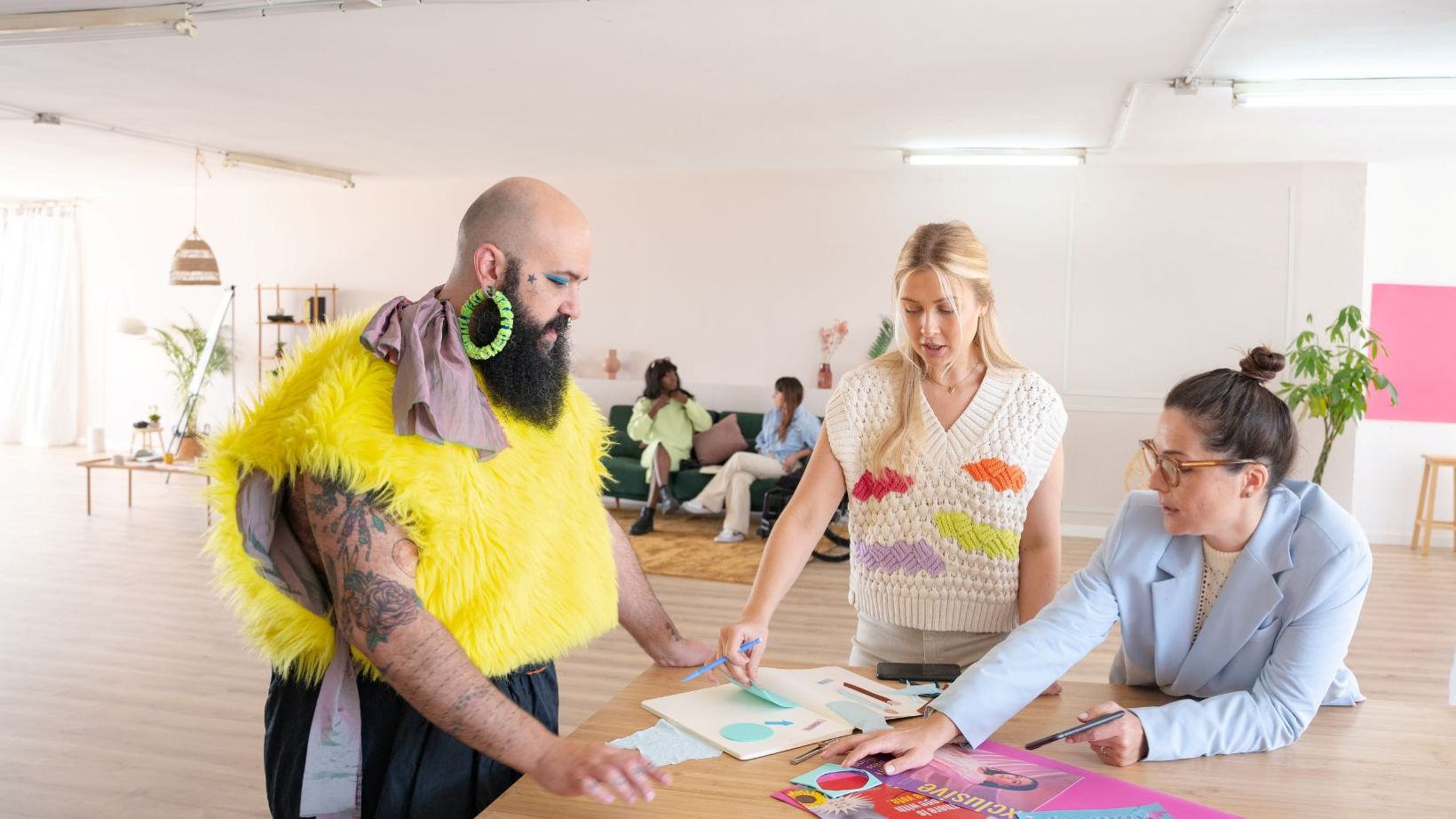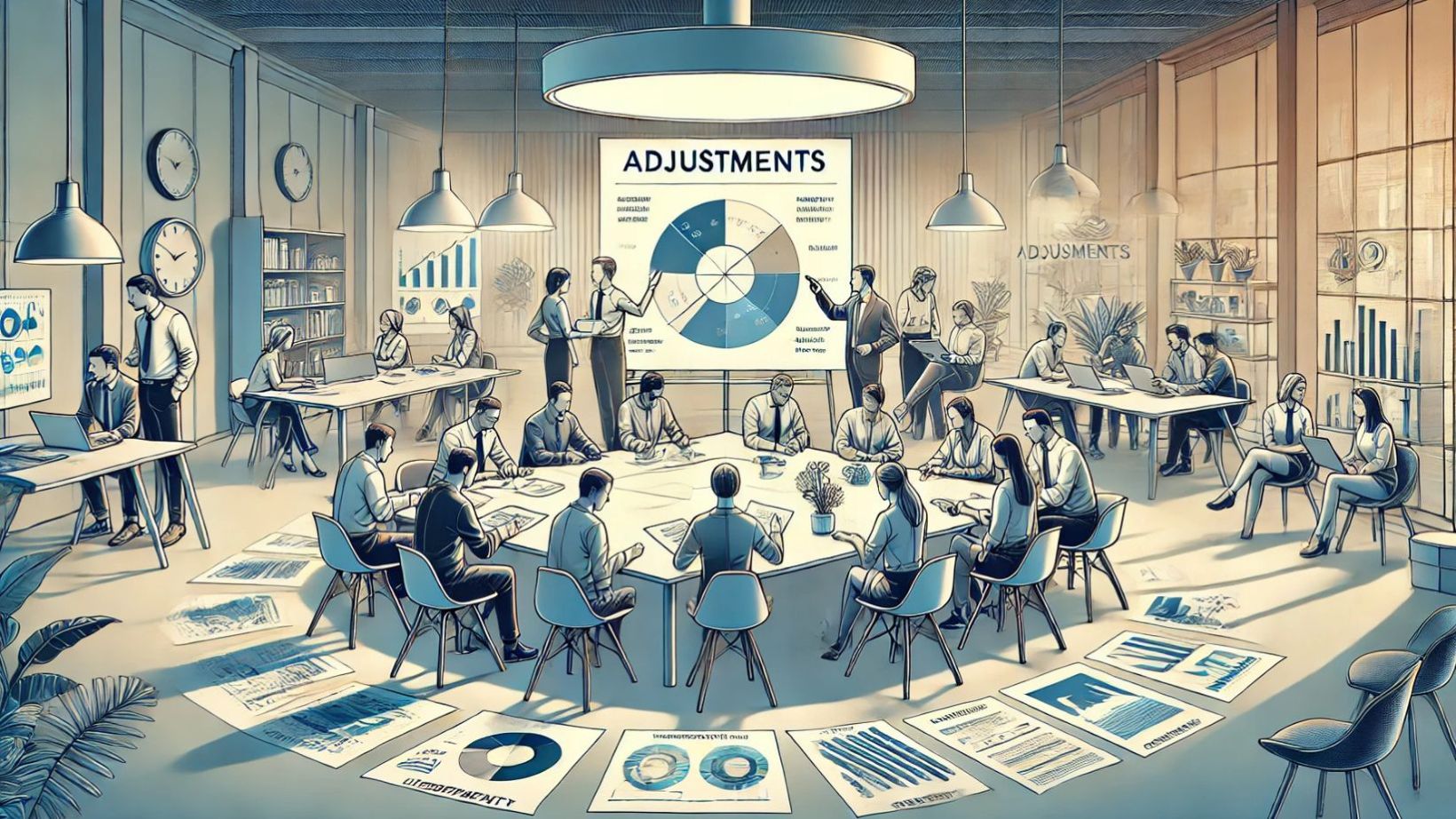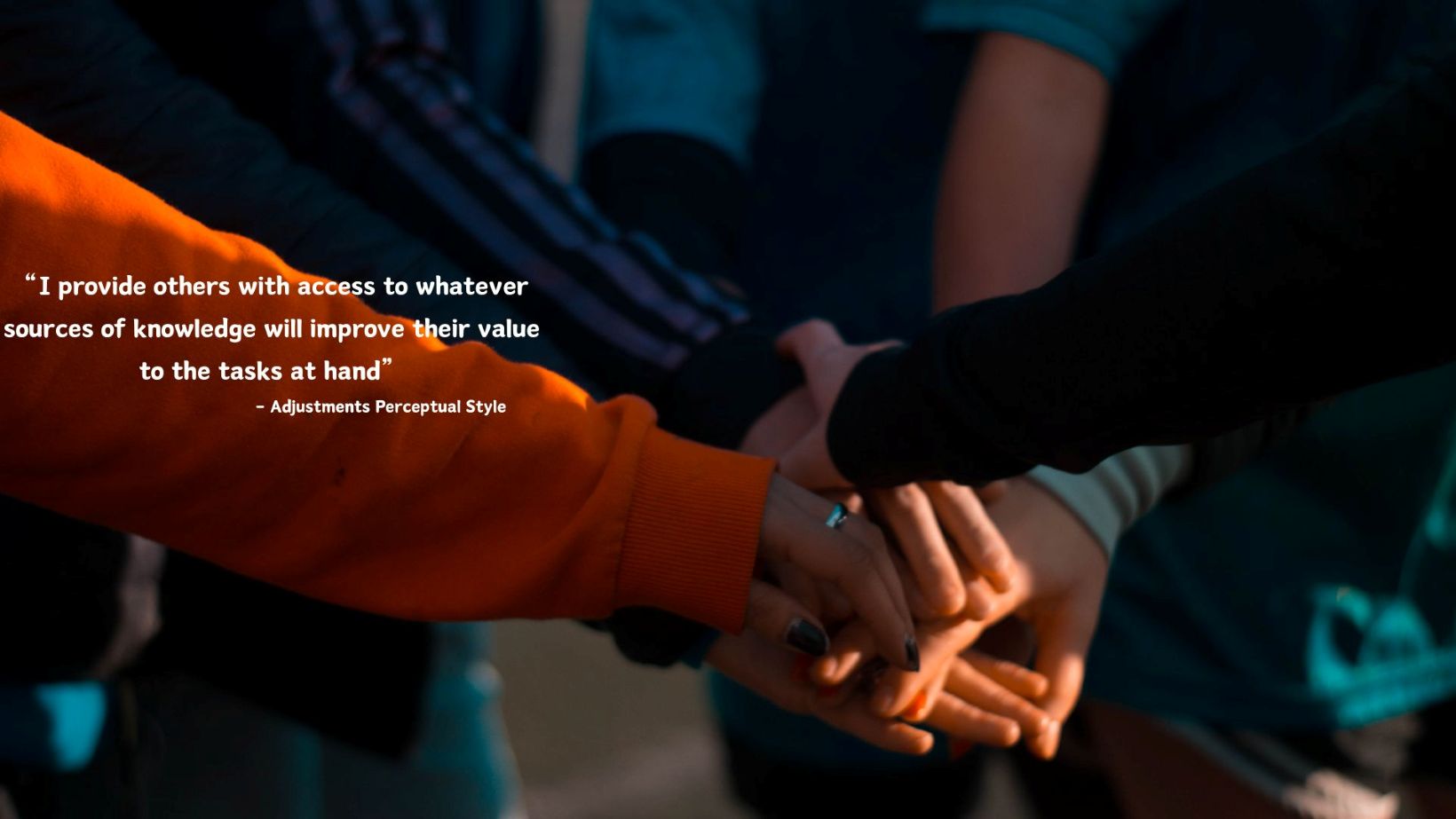Adjustments Perceptual Style and Collaboration
Fostering Collaboration Through Balance and Insight
Collaboration is more than just working side by side — it’s about building connections, creating shared goals, and fostering mutual respect. Whether it’s within your family, workplace, or social groups, collaboration shapes the way we relate, grow, and succeed together.
But effective collaboration isn’t one-size-fits-all. Your natural approach to collaboration is shaped by your Adjustments Perceptual Style — and that brings a unique balance of diplomacy, structure, and thoughtful observation to every team you’re part of.
Why Collaboration Matters

At our core, humans are wired for connection. Studies in psychology and sociology consistently show that we thrive in community and wither in isolation.
Collaboration is more than sharing tasks — it’s about combining strengths, building trust, and achieving shared success.
When done well, collaboration:
-
Creates clarity and shared purpose.
-
Improves efficiency and productivity.
-
Builds trust and fosters long-term relationships.
But let’s be honest — collaboration isn’t always smooth. Different people bring different perspectives, expectations, and styles to the table. That’s where your Adjustments Perceptual Style shines.
How Adjustments People Collaborate
With an Adjustments Perceptual Style, you bring calm, focus, and a structured approach to collaboration. You value clarity, cooperation, and thoughtful analysis, and you’re at your best when contributing to group goals in your steady, analytical way.
Here’s what sets your collaborative style apart. You:
-
Focus on your role and responsibilities with quiet efficiency.
-
Enhance cooperation by addressing issues diplomatically and fairly.
-
Help groups stay focused on tasks and outcomes.
-
Improve processes by identifying and streamlining inefficiencies.
-
Support others by offering clarity and thoughtful guidance.
Your approach isn’t about seeking the spotlight — it’s about ensuring the group stays balanced, focused, and productive.

Your Collaborative Superpowers

When you’re part of a team, your natural strengths create a stabilizing force, because you:
-
Bring diplomacy to group dynamics. Your calm and objective approach helps resolve conflicts and maintain harmony.
-
Track and monitor team processes. You keep workflows efficient and on target.
-
Provide clarity and structure. Complex or confusing tasks are no match for your thoughtful guidance.
-
Facilitate cooperation. You ensure everyone’s needs and interests are communicated clearly.
-
Focus on meaningful results. Every task is approached with care, precision, and attention to detail.
Your ability to balance structure and diplomacy makes you an essential part of any team.
Why Understanding Your Perceptual Style Matters
Collaboration can be challenging, especially when different styles clash or expectations aren’t aligned. But when you understand your Adjustments Perceptual Style, you can:
-
Leverage your natural strengths to foster balanced and productive teamwork.
-
Avoid frustration by identifying and addressing potential misalignments early.
-
Help mediate challenges with fairness and impartiality.
-
Keep the team grounded and focused even in moments of chaos or uncertainty.
When you embrace your natural strengths, collaboration becomes less about navigating obstacles and more about creating meaningful, lasting results.

Take Action: Discover Your Perceptual Style

The Perceptual Style Assessment doesn’t just identify your strengths—it equips you with practical tools and insights to collaborate more effectively.
When you take the assessment, you’ll receive:
-
A 45-page Celebrate You! action guide tailored to the Adjustments Perceptual Style.
-
Clear insights into your natural collaborative strengths.
-
Practical strategies for navigating group dynamics with confidence.
Stop struggling through mismatched collaboration styles. Start thriving with clarity, balance, and insight.
Explore Other Perceptual Styles and Change
Want to see how others approach change? Explore the unique strengths and perspectives of each Perceptual Style:
Understanding your style is the first step. Recognizing and appreciating the strengths others bring to the table turns collaboration into a strategic advantage.
Want to learn more about the Six Perceptual Styles?
To see a three-minute presentation on a specific Perceptual Style, please click on the specific image below:






